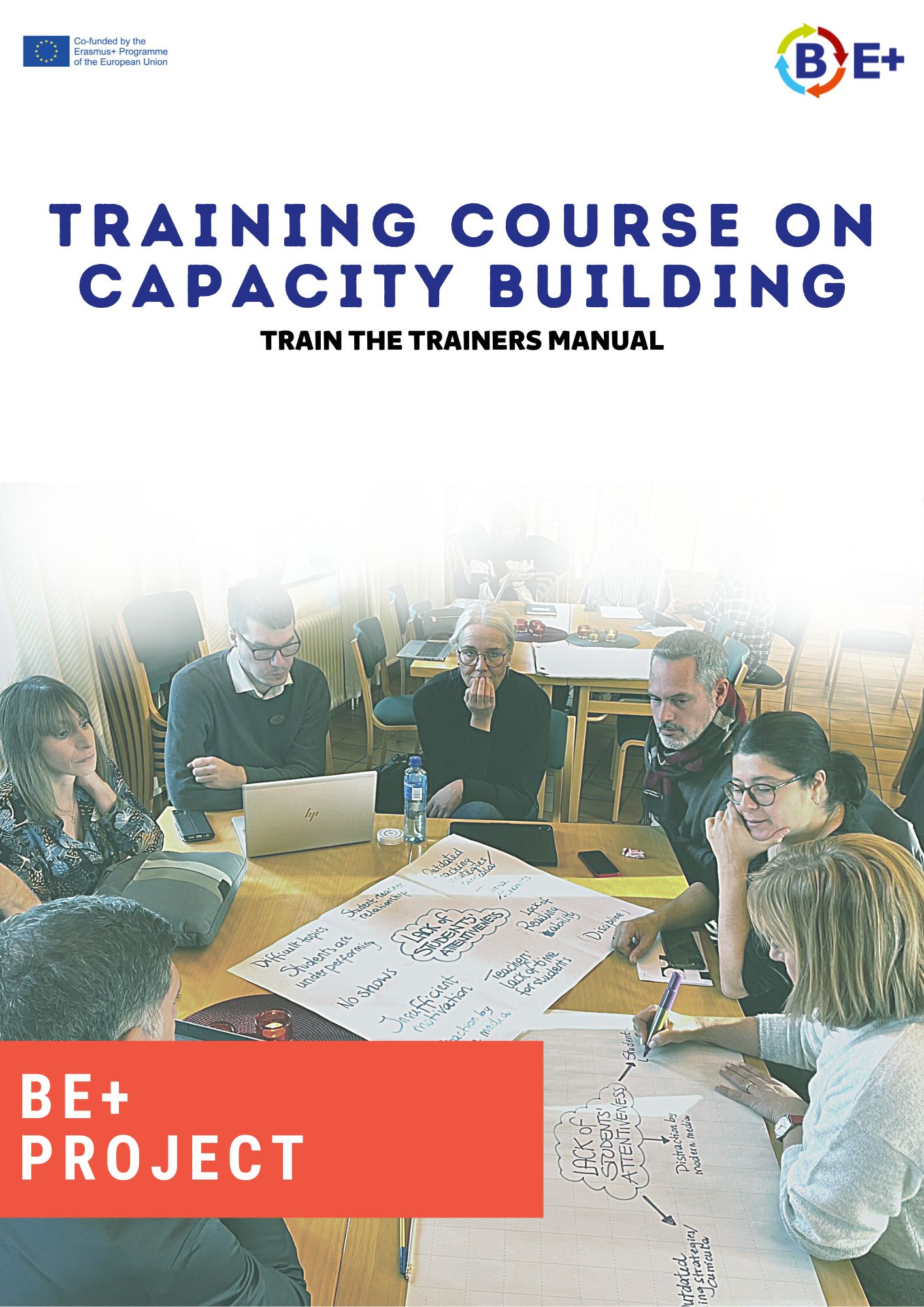Thetraining course on capacity building

The BE+ project has been testing the training activities explained below through two seminars attended by more than 30 teachers and headmasters from 4 different countries. A key element which has surfaced from the testing, and was highlighted by the participants, has been the importance of using a common method.
Project Cycle Management (PCM) can be a crucial planning tool in Erasmus projects, providing a structured framework for effective project planning helping delivering higher quality projects. This “train the trainer” manual will help schools in introducing this method in the framework of their international activities and projects. There are three main reasons why headmasters or teachers in charge of international activities should choose PCM as planning methods:
EFFICIENT PLANNING: PCM allows for systematic planning and organization of project activities, ensuring that all necessary steps are considered and implemented in a logical sequence. It helps potential project teams to define clear objectives, identify relevant activities, allocate resources appropriately, and establish realistic implementation paths.
HOLISTIC APPROACH: PCM allows for systematic planning and organization of project activities, ensuring that all necessary steps are considered and implemented in a logical sequence. It helps potential project teams to define clear objectives, identify relevant activities, allocate resources appropriately, and establish realistic implementation paths.
CLARITY AND CONSISTENCY: PCM helps in maintaining clarity and consistency throughout the project lifecycle. By helping partners in establishing shared methodological approach and clearly defining roles and responsibilities this method will ensure that all project partners are on the same page, reducing confusion and enhancing collaboration.
The objective of the BE+ “train the trainer manual” is to support those who lead the capacity building process inside the school around international questions. The manual is designed to enhance the capability of their colleagues to plan and implement EU projects efficiently within the context of the Erasmus program.

